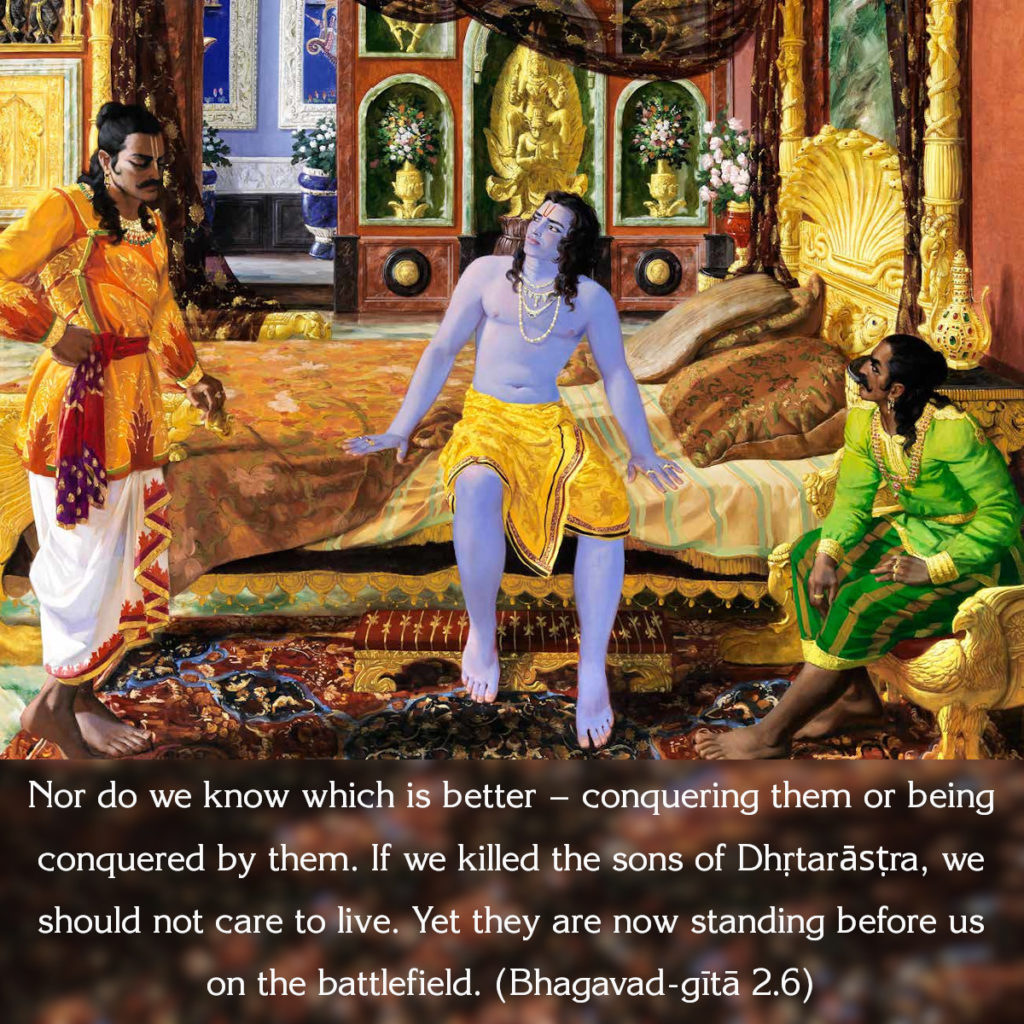न चैतद्विद्म: कतरन्नो गरीयो
यद्वा जयेम यदि वा नो जयेयु: |
यानेव हत्वा न जिजीविषाम
स्तेऽवस्थिता: प्रमुखे धार्तराष्ट्रा: || 6||
na chaitadvidmaḥ kataranno garīyo
yadvā jayema yadi vā no jayeyuḥ
yāneva hatvā na jijīviṣhāmas
te ’vasthitāḥ pramukhe dhārtarāṣhṭrāḥ
na—not; cha—and; etat—this; vidmaḥ—we know; katarat—which; naḥ—for us; garīyaḥ—is preferable; yat vā—whether; jayema—we may conquer; yadi—if; vā—or; naḥ—us; jayeyuḥ—they may conquer; yān—whom; eva—certainly; hatvā—after killing; na—not; jijīviṣhāmaḥ—we desire to live; te—they; avasthitāḥ—are standing; pramukhe—before us; dhārtarāṣhṭrāḥ—the sons of Dhritarashtra
Translation:
We do not know which would be the better for us: that we should conquer them or they should conquer us. Arrayed against us stand the very sons of Dhritarāshtra, after slaying whom we should not wish to live.
Commentary:
Here we see Arjuna move away from the all-or-nothing position of “I will not fight”. His hardline position morphed into a dilemma. And the dilemma was as follows: “Should I or should I not fight? I do not know which is correct.” This question is the fundamental question that provoked the message of the Gita that we shall see very shortly.
Here’s another important point. Arjuna’s teachers and elders were revered and respected by him, they gave him pleasure, but here they were in front of him, ready to kill him. Similarly, behind every pleasure-filled person, experience or object we encounter in life lies its negative aspect. This is an interesting insight about life. It is rare to find people, experiences or objects that give us pleasure all of the time. Here’s an example that resonates with us: a new house that was a source of joy in the beginning, will cause grief when one has to pay for its maintenance.
